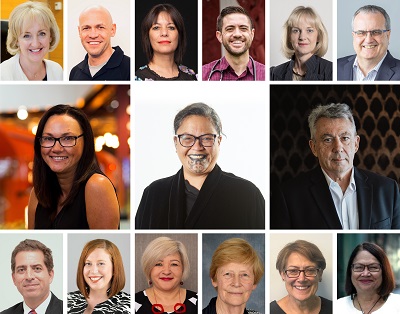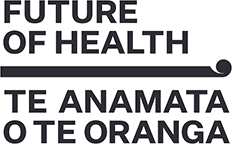Update from the Transition Unit - Monday 11 October 2021
A stronger voice for Māori
Associate Minister of Health
Peeni Henare
When this Government set out on the transformational, and long overdue, reform of the health sector, we knew we needed to right the wrongs that had existed for too long for Māori.

Peeni Henare
We had heard through numerous forums that the system wasn’t delivering for Māori. We knew that our people needed a stronger voice within a system that was focused on health for everyone in New Zealand. Not a separate system, but stronger influence within a cohesive, consistent, system.
I’m pleased that just five months on from announcing the details of the health system reform we now have an interim Māori Health Authority established and a group of experienced and talented leaders appointed to the board.
We announced the board members on 23 September. Since then, I have had substantial feedback on the success of Tā Mason Durie’s steering group and the role it played in advising on appointments.
We are never going to be able to have a board that represents every profession or area of expertise. The crucial factor for the steering group was a mix of skills and professions and true connection to the voice of whānau. That has undoubtedly been achieved.
I know the board is highly motivated to get started on the mahi that will give Māori a strong voice once again, embedding the principles of Te Tiriti into the health system, and addressing inequities.
The Authority will work closely with both the Ministry of Health and Health New Zealand and will benefit from the valuable input from Iwi Māori Partnership Boards.
I’m looking forward to working with the board and, together, creating a system that better supports those that have been underserved for too long.
Healthy and integrated communities motivate board Chairs
The new Chairs of the interim entities Health New Zealand and Māori Health Authority share a dedication to healthy and empowered communities.
Chair of interim Health New Zealand, Rob Campbell, and Co-Chairs of the interim Māori Health Authority, Sharon Shea and Tipa Mahuta, share their motivations and aspirations for the leadership roles.
"My intention is to bring what I have learned during my career about how organisations best work to the health sector," Rob Campbell says.
"A healthy community involves us all and health services are a core part of our communities. Health New Zealand will enable skilled and dedicated professionals to do their best, and deliver equity and excellence to all we do."
For Sharon Shea and Tipa Mahuta integrating te ao Māori into New Zealand’s healthcare system presents substantial opportunity.
"My marae established the first marae-based health clinic in the 1980s as a model of care for our whānau and increased access to hauora services," Tipa Mahuta shares.
"From the work of many we are fortunate to be able to launch into a new era of Māori decision-making in health. The challenge remains, in my opinion, to empower our whānau to enjoy intergenerational health gains and increase their opportunity to drive their own hauora futures and decision-making."
Sharon Shea, who also sits on the board of Health New Zealand, says the opportunity to provide leadership which supports transforming intergenerational cycles of disadvantage to advantage matters.
"As a proud New Zealander and a proud indigenous woman and, one-day, grandmother, I would to see every mokopuna in Aotearoa New Zealand flourishing, thriving and realising the rangatiratanga they are born with."
Read about the board appointments
New boards come together for induction
The newly appointed members to the boards of the interim entities the Māori Health Authority and Health New Zealand have met virtually for their induction and introduction to the health reform programme. The induction was held on 6-7 October.
Read about the board induction

Members of the new boards
Update on locality prototypes
The Transition Unit is continuing to develop an approach to locality prototypes in preparation for a briefing to the incoming interim entities Health New Zealand and the Māori Health Authority.
'Localities' will be a key feature of the future health system and provide a vehicle to embed a population health approach and to join up services to enable more seamless care, tailored to the needs of the local population.
One aim is to foster community-led solutions that make a difference to the wider social, behavioural, economic and environmental determinants of health.
The approach to the prototypes is being informed by insights into existing practice within the sector and guided by a set of parameters to ensure the prototypes provide strong lessons that can be applied to future localities.
Transition Unit Deputy Director Martin Hefford says the first prototypes are planned to be stood up in early 2022.
"It will be important to roll out the first localities across a range of geographies and communities," Martin says.
"We have developed a proposed set of parameters for the first localities that will ensure the sector can gain strong insights as to what works well across various settings."
The proposed parameters to guide the desired mix of locality prototypes are:
- At least one locality in each of the four regions
- At least one locality with a high Māori population or a network that is iwi or Māori provider led
- A locality with a high Pacific population or a network led by a Pacific provider
- At least one rural prototype
- At least one prototype which is in an urban area with high levels of deprivation.
Prototypes should collectively cover the priority population cohorts (mental health and addictions, mothers and babies, aged care / those with frailty, and chronic illness and complex care).
"These parameters have been used to prioritise the areas of focus during the discovery phase,” Martin says.
"We are now following up with those that provided information, within these focus areas, to better understand how things are currently working and the readiness to stand up a locality model as a prototype.
"One of the key considerations for prototype selection will be strong and trusted relationships between commissioners, local iwi, providers, the workforce, community and across sectors."
The Transition Unit will be proposing these parameters for consideration by the interim Health New Zealand and interim Māori Health Authority boards.

Indicative timeline for selecting prototypes
Consumer health forum Aotearoa launched
The forum will support the health system to connect with diverse voices of consumers, whānau, and communities to ensure consumer and whānau voices are prioritised at all levels of service set up, evaluation, and delivery.
Forum members will be part of a database of consumers and consumer groups (against particular focus areas) and will also be involved in both online and in-person events, facilitated by the Health Quality & Safety Commission.
Emphasis will be placed on:
- Improving experience for consumers and whānau
- Embedding and enacting Te Tiriti o Waitangi, supporting mana Motuhake
- Achieving health equity
- Strengthening systems for high-quality services.
Read about the forum on the Health Quality & Safety Commission website(external link)
Stay up to date on the future of health
Information on reform of Aotearoa New Zealand’s health sector is now situated on a new website dedicated to the reform - Future of health
The website includes background information, including cabinet papers, details of the reforms and will be updated regularly with progress.
People working on the health reform
There are a range of different people from different backgrounds working on the reform of Aotearoa New Zealand’s health system. Many are from within the health sector and have joined the Transition Unit from District Health Boards or Primary Healthcare Organisations.
Over the next few months some of these people will be profiled in this newsletter from the Transition Unit.
If there are any particular areas of the work programme that you would like to hear about, send the Transition Unit an email: enquiries.tu@dpmc.govt.nz
Printable version
Update from the Transition Unit - Monday 11 October 2021 [PDF, 232 KB]
